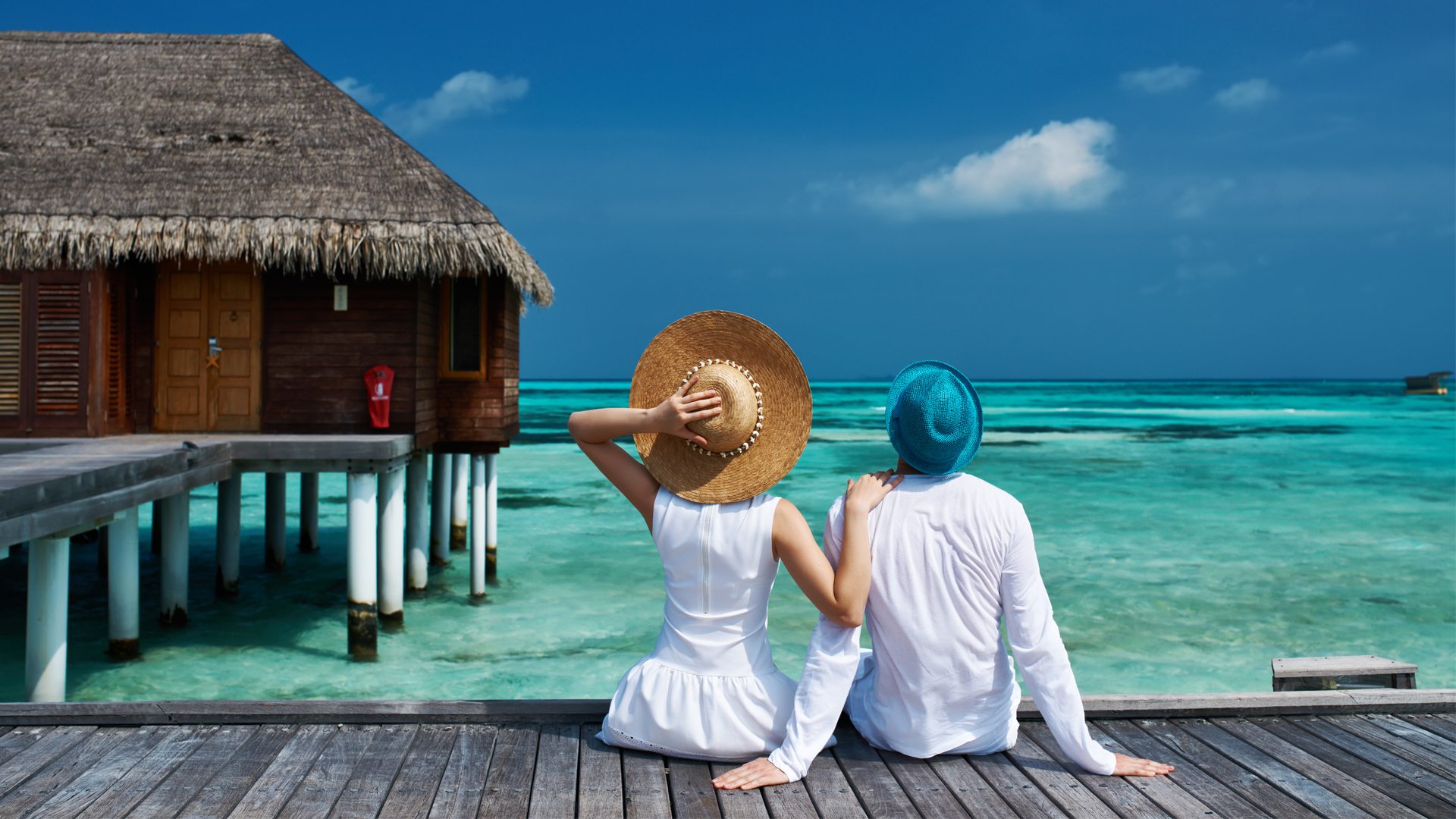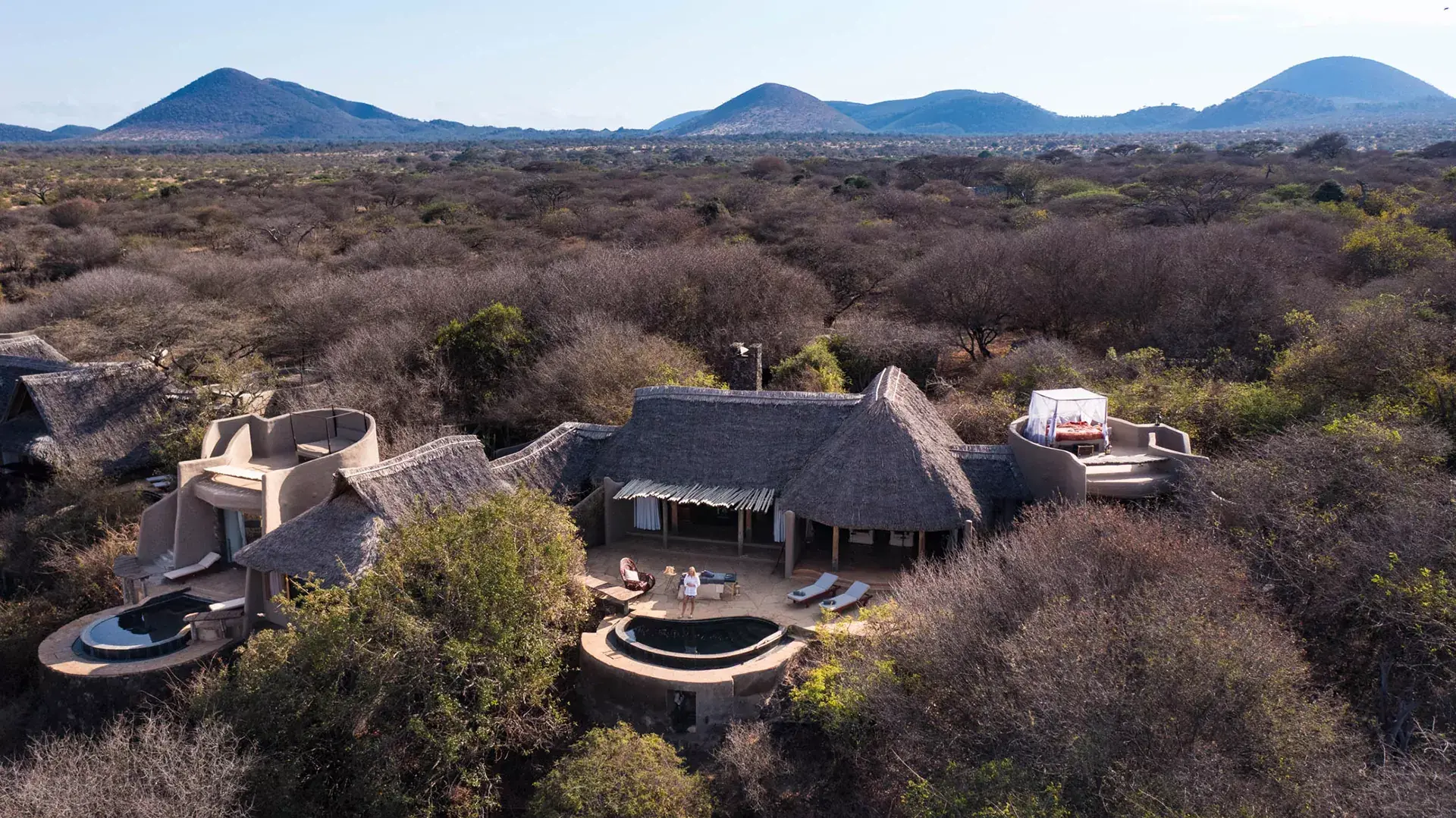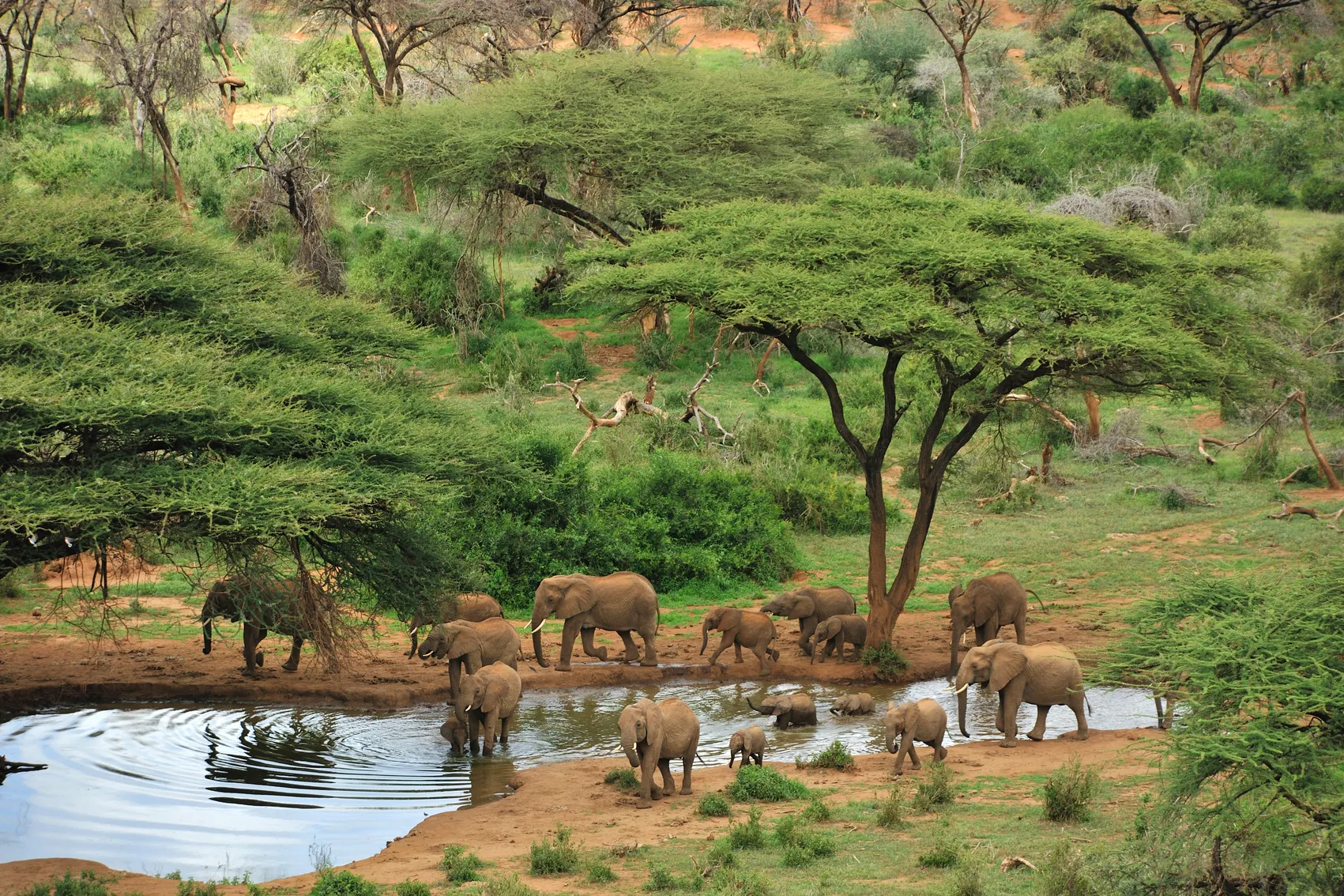Introduction
When most travellers think of Zanzibar, Stone Town immediately comes to mind. This UNESCO World Heritage Site is indeed enchanting, with its winding alleys, ornate doors, and vibrant markets. But Zanzibar is far more than its historic capital. Beyond Stone Town lies a world of untouched beaches, hidden lagoons, spice farms, fishing villages, and cultural experiences that reveal the island’s true soul.
From pristine stretches of white sand in Matemwe to the mangrove forests of Jozani, Zanzibar invites exploration for those willing to step off the beaten path. Unlike crowded tourist areas, these hidden gems retain their authenticity and tranquillity, offering visitors a deeper connection with the island’s culture, nature, and people.
Whether you’re looking for secluded beaches, unique wildlife encounters, or immersive local experiences, Zanzibar rewards the curious. In this guide, we uncover the island’s best-kept secrets — the destinations and activities that go beyond Stone Town and leave lasting memories.
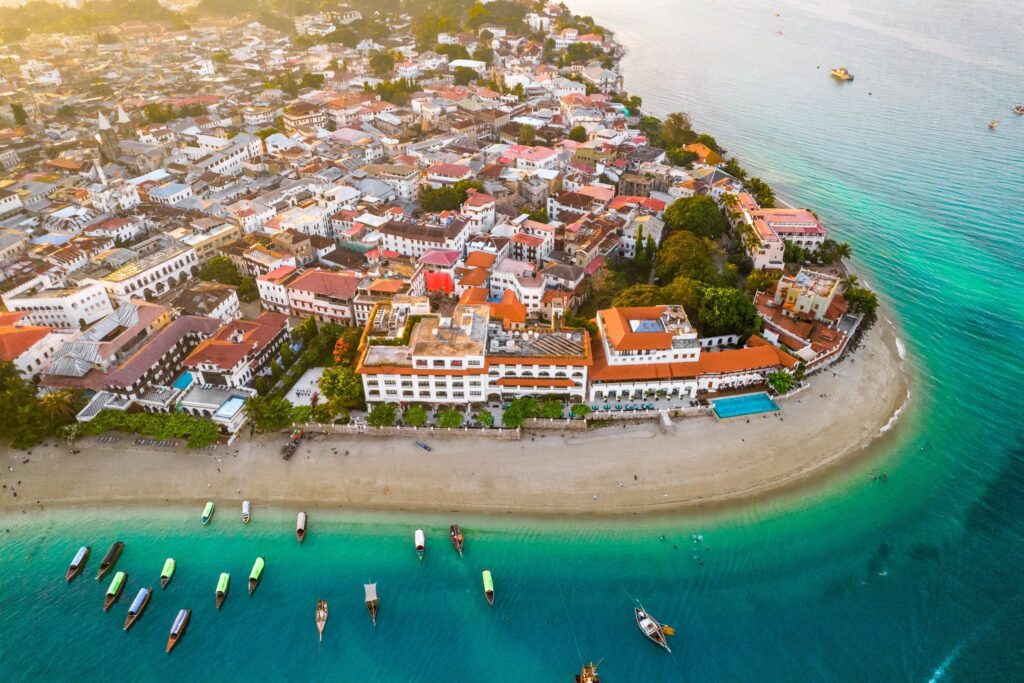
The Untouched Beaches of Zanzibar
Zanzibar is world-renowned for its beaches, but not all are created equal. While Nungwi and Kendwa are popular, they can be busy. For a quieter experience, venture further.
- Matemwe Beach: Located on the northeast coast, Matemwe is long, peaceful, and ideal for travellers seeking solitude. Its shallow waters are perfect for wading, and it serves as a gateway to the Mnemba Atoll, a diving and snorkelling paradise.
- Michamvi Peninsula: Known for its sweeping tidal lagoons, Michamvi is perfect for watching sunsets without the crowds. Here, you can walk for miles during low tide, discovering tidal pools teeming with marine life.
- Kizimkazi: Famous for dolphin spotting, Kizimkazi also offers serene beaches with fishing village charm. Early-morning boat rides reveal playful pods of dolphins, making it a favourite for eco-tourists.
Unlike the busier stretches of Nungwi, these beaches offer quiet reflection, uncrowded sands, and boutique lodges where life moves at a slower pace. They are ideal for honeymooners, families seeking privacy, or solo travellers looking to recharge.
The Spice Farms Experience
Zanzibar is known as the “Spice Island”, thanks to its centuries-old history of growing cloves, cinnamon, nutmeg, and cardamom. While many tours stop at commercial farms, the real magic lies in visiting smaller, family-run plantations.
In villages such as Kizimbani and Kidichi, guides walk you through lush plantations where every plant has a story. You’ll smell fresh vanilla pods, taste starfruit plucked from the tree, and watch demonstrations on how spices are harvested. Some tours even end with a traditional Swahili meal, cooked with freshly picked herbs and spices.
These intimate experiences allow visitors to connect with locals and understand Zanzibar’s agricultural heritage. Unlike tourist-heavy spice tours, family-run farms often provide hands-on interaction and the chance to support local communities directly.
Jozani Forest and the Red Colobus Monkeys
One of Zanzibar’s ecological treasures is the Jozani Chwaka Bay National Park, home to the rare red colobus monkey, a species found only in Zanzibar. Walking through the forest, visitors encounter these playful primates leaping between trees, often coming close to the trails.
The park is also home to mangrove boardwalks that reveal a unique coastal ecosystem where land and sea meet. Here, you’ll spot crabs scuttling between roots, exotic birds, and butterflies fluttering through the dappled light.
While many tours rush visitors through, spending more time with a knowledgeable guide reveals fascinating details about medicinal plants, the forest’s conservation efforts, and the delicate balance between local livelihoods and ecosystem protection.
For nature lovers, Jozani offers an unforgettable glimpse into Zanzibar’s biodiversity — an experience that goes far beyond the beaches.

Exploring Local Villages and Swahili Culture
Zanzibar’s charm extends beyond its natural beauty. The island’s heart lies in its Swahili culture, shaped by African, Arab, Indian, and European influences. Visiting small fishing and farming villages offers an authentic look at local life.
- Paje Village: Once a sleepy fishing community, Paje is now known for kitesurfing, but its local roots remain intact. Walking through the village, you’ll find women drying seaweed, a key source of income for many families.
- Jambiani: Another fishing village where life still follows the rhythm of the tides. Visitors can join locals on fishing trips, learn traditional dhow-building, or share stories over spiced tea.
Engaging with these communities not only supports sustainable tourism but also deepens your appreciation of Zanzibar’s living heritage. Unlike packaged tours, these encounters are genuine, personal, and memorable.
The Secret of Chumbe Island
For those craving a true eco-paradise, Chumbe Island Coral Park is one of Zanzibar’s best-kept secrets. Located off the west coast, this protected reserve is both a marine sanctuary and a forest reserve.
Visitors stay in eco-bungalows powered by solar energy, with rainwater catchment systems and compost toilets — a model of sustainable living. Activities include snorkelling in pristine coral reefs, guided nature walks, and stargazing on untouched beaches.
Because visitor numbers are limited, Chumbe feels like your own private island, blending luxury with conservation. It’s an ideal escape for eco-conscious travellers and couples seeking exclusivity.
Off-the-Beaten-Path Activities
Beyond beaches and forests, Zanzibar offers unique experiences for adventurous travellers:
- Kayaking through Mangroves: Explore hidden waterways near Chwaka Bay, rich in birdlife and coastal ecosystems.
- Cooking Classes: Join local chefs in preparing Swahili dishes like octopus curry and pilau rice, using freshly ground spices.
- Dhow Sunset Cruises: Unlike crowded group tours, small private dhows let you experience the tranquillity of the Indian Ocean with just a few fellow travellers.
- Biking Tours: Ride through coconut groves, rice paddies, and back roads, connecting with rural Zanzibar in a way cars cannot.
These activities show another side of the island, active, immersive, and deeply tied to its environment and culture.
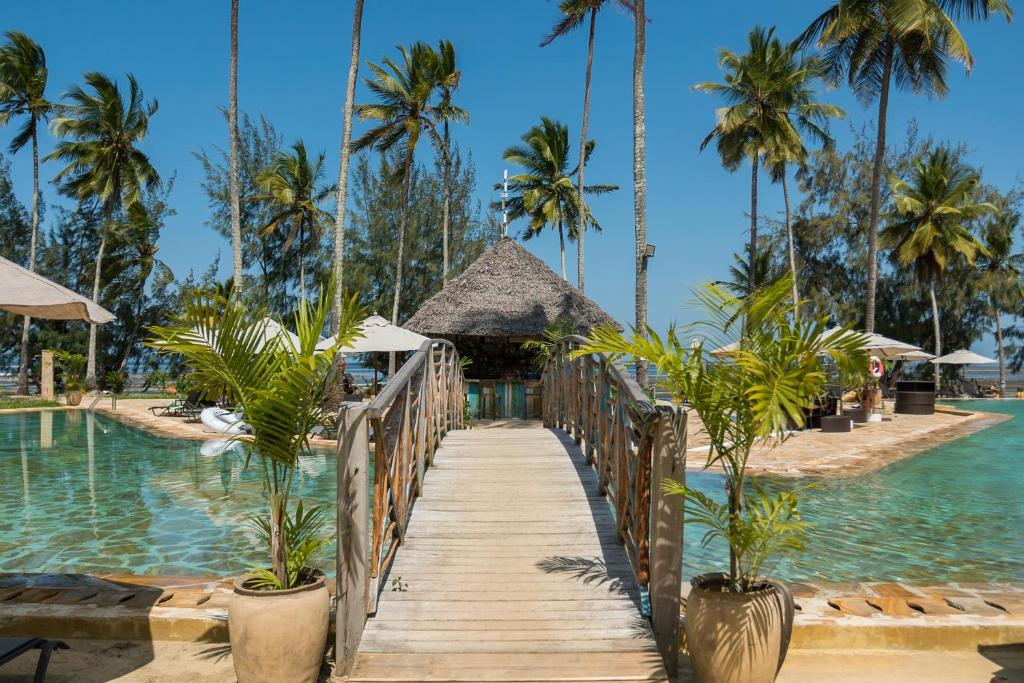
Conclusion
Zanzibar is more than its iconic Stone Town. Beyond the winding alleys and spice markets lies a world of hidden treasures: secluded beaches, ancient forests, authentic villages, and eco-paradises. These lesser-known experiences offer travellers the chance to connect with the island in deeper, more meaningful ways.
For honeymooners, these secret spots create private, romantic escapes. For families, they provide educational, immersive adventures. For adventurers, they reveal offbeat trails and encounters. And for eco-conscious travellers, they demonstrate sustainable tourism at its best.
By venturing beyond the familiar, you discover Zanzibar’s true richness — a destination where culture, nature, and hospitality come together in unforgettable harmony. At Kisiwa Stays, we curate itineraries that uncover these hidden gems, ensuring your journey goes beyond the expected and into the extraordinary.

